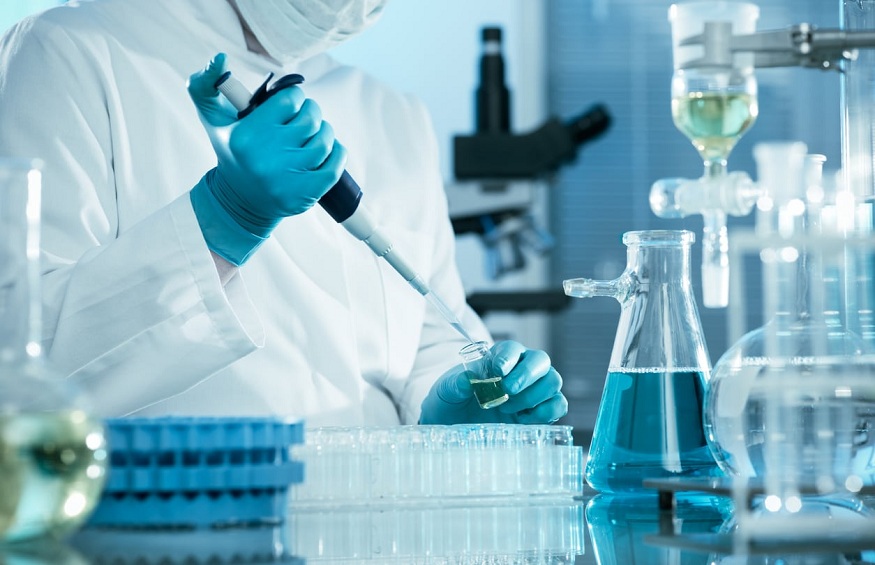Advantages of Advanced Use of Quality Laboratory Equipment
Laboratory equipment is essential in scientific research, diagnosis, and analysis. Using advanced laboratory equipment has numerous benefits, ranging from increased efficiency, accuracy, and safety to cost-effectiveness. In this article, we will discuss the advantages of advanced use of quality laboratory equipment and why it is crucial in scientific research.
Advantages of advanced laboratory equipment
1. Increased Efficiency
Time-saving
Automation of processes
Accurate and precise results
High-throughput screening
2. Accurate and Precise Results
Reduced errors
Consistent results
Increased reliability
Elimination of human error
3. Cost-effectiveness
Lower operational costs
Reduced maintenance costs
Increased productivity
Reduction of repetitive tasks
4. Enhanced Safety
Reduced risk of exposure to hazardous substances
Minimization of safety hazards
Increased safety measures
Protective equipment for staff and equipment
5. Improved Data Management
Centralization of data
Accurate tracking of data
Enhanced data security
Easy retrieval of information
6. Technological Advancements
Improved technology
Advanced software
Increased compatibility
Up-to-date features
7. Competitive Advantage
Ability to produce high-quality results
Increased credibility
Enhanced reputation
Attracting more funding opportunities
Types of quality laboratory equipment
Laboratory equipment plays a crucial role in scientific research, diagnosis, and analysis. It enables scientists and researchers to conduct experiments, analyze data, and make accurate conclusions. Quality laboratory equipment ensures that the results obtained are reliable and accurate.
1. Microscopes
Microscopes are essential tools used to magnify objects and examine their details. Microscopes are used in various scientific fields, including biology, chemistry, and materials science.
2. Centrifuges
Centrifuges are laboratory tools used to separate particles based on their size and density. Laboratory Centrifuges are commonly used in medical laboratories, where they are used to separate blood samples into their components.
3. Spectrophotometers
Spectrophotometers are instruments used to measure the intensity of light passing through a sample. They are used in chemistry and biology to determine the concentration of substances in a sample.
4. Balances
Balances are devices used to measure the mass of an object accurately. They are used in various fields, including chemistry, physics, and biology.
5. Incubators
Incubators are used in microbiology and cell culture labs to create an environment that mimics the conditions required for cell growth.
6. Chromatography Systems
Chromatography systems are used to separate and analyze complex mixtures of substances. They are commonly used in chemistry and biochemistry.
7. PCR Machines
PCR machines are used to amplify DNA segments for genetic analysis. They are commonly used in molecular biology and genetics.
8. Autoclaves
Autoclaves are used to sterilize laboratory equipment, media, and waste. They are commonly used in microbiology and medical laboratories.
9. Fume Hoods
Fume hoods are used to protect laboratory workers from harmful gases, vapors, and fumes. They are commonly used in chemistry labs.
10. pH Meters
pH meters are used to measure the acidity or basicity of a solution. They are commonly used in chemistry and biology labs.
How to maintain and maintain laboratory equipment
Proper maintenance of laboratory equipment is crucial to ensure their longevity and accurate results. Here are some tips to maintain and care for laboratory equipment:
Follow the manufacturer’s instructions: Always refer to the equipment manual or instructions provided by the manufacturer for maintenance guidelines.
Clean regularly: Keep the equipment clean and free from dust, debris, and chemical residues. Use appropriate cleaning solutions and tools as specified by the manufacturer.
Calibrate regularly: Calibration ensures accurate results. Regular calibration of laboratory equipment, such as balances, pH meters, and pipettes, should be done as per the manufacturer’s instructions.
Perform preventive maintenance: Schedule regular preventive maintenance of laboratory equipment, such as replacing filters, checking seals, and testing safety features.
Keep a maintenance log: Keep a record of maintenance and repair activities performed on laboratory equipment, including the date, type of service, and name of the technician who performed the work.









